- Home
- James Phelan
The Spy
The Spy Read online
Praise for James Phelan and his work
“James Phelan has produced a big, juicy, rollicking tale in the spirit of Robert Ludlum. We haven’t seen an international thriller like this for a long time.” —Jeffery Deaver on Patriot Act
“James Phelan is one of the hottest thriller writers to arrive on the scene in years.” —Vince Flynn
“James Phelan has earned a new avid fan.” —Steve Berry
“Vivid and suspenseful . . . an espionage novel with grunt.” —Sydney Morning Herald on The Spy
“Walker’s so tough he’s got muscles in his spit.” —West Australian
“A finely honed story which proves the thriller genre is alive . . . Can’t wait for the next one.” —Sunday Times on Fox Hunt
“Phelan gets the balance absolutely right . . . An absolute must-read for fans of Clancy, Ludlum et al.” —Bookseller & Publisher on Patriot Act
“Like all good thrillers . . . Phelan keeps the reader guessing right up to the last page.” —The Age on Patriot Act
“Phelan’s techno-thriller is in the same league as Clive Cussler and Tom Clancy.” —Sun-Herald on Blood Oil
James Phelan is the bestselling and award-winning author of twenty-eight novels and one work of non-fiction. From his teens he wanted to be a novelist but first tried his hand at a real job, studying and working in architecture before turning to English literature, spending five years at a newspaper and obtaining an MA and PhD in literature. James has written five titles in the Lachlan Fox thriller series, and the Alone trilogy of young adult post-apocalyptic novels. The ex-CIA character of Jed Walker was first introduced in The Spy, which was followed by The Hunted, Kill Switch and Dark Heart. James has also written a fourteen-book adventure series for Scholastic, titled The Last Thirteen. He has been a full-time novelist since the age of twenty-five, and spends his time writing thrilling stories and traveling the world to talk about them.
To find out more about James and his books, visit:
www.jamesphelan.com
Follow and interact with James:
www.facebook.com/realjamesphelan
www.twitter.com/realjamesphelan
www.instagram.com/realjamesphelan
www.whosay.com/jamesphelan
BY JAMES PHELAN
The Jed Walker books
The Spy
The Hunted
Kill Switch
Dark Heart
The Lachlan Fox books
Fox Hunt
Patriot Act
Blood Oil
Liquid Gold
Red Ice
The Alone series
Chasers
Survivor
Quarantine
New York • London
© 2017 by James Phelan
Cover design by Luke Causby
Cover photographs courtesy Trevillion Images
First published in the United States by Quercus in 2017
All rights reserved. No part of this book may be reproduced in any form or by any electronic or mechanical means, including information storage and retrieval systems, without permission in writing from the publisher, except by reviewers, who may quote brief passages in a review. Scanning, uploading, and electronic distribution of this book or the facilitation of the same without the permission of the publisher is prohibited.
Please purchase only authorized electronic editions, and do not participate in or encourage electronic piracy of copyrighted materials. Your support of the author’s rights is appreciated.
Any member of educational institutions wishing to photocopy part or all of the work for classroom use or anthology should send inquiries to [email protected].
e-ISBN 978-1-63506-019-5
Distributed in the United States and Canada by
Hachette Book Group
1290 Avenue of the Americas
New York, NY 10104
This book is a work of fiction. Names, characters, institutions, places, and events are either the product of the author’s imagination or are used fictitiously. Any resemblance to actual persons—living or dead—events, or locales is entirely coincidental.
www.quercus.com
This one’s for my agent, Pippa.
The Facts
In military time, to say “zero-one-thirty” is to say 1:30 in the morning (written 0130). When someone says “zero-dark-thirty,” they mean a non-specific hour when it is very late or very early in the morning, and still dark.
At zero-dark-thirty on the morning of May 2, 2011, a CIA covert operation named Neptune’s Spear was conducted in the city of Abbottabad, Pakistan.
The operators were members of DEVGRU, better known as SEAL Team Six, inserted aboard two highly modified Black Hawk helicopters of the 160th SOAR. Their mission was to capture or kill Osama bin Laden.
Within minutes of its start, the SEAL team leader radioed, “For God and country: Geronimo, Geronimo, Geronimo,” and then, after being prompted for confirmation, replied: “Geronimo EKIA.” (Enemy Killed In Action.)
The most expensive manhunt in history had come to an end. The terrorist Osama bin Laden—codenamed “Geronimo” for the mission—was shot dead.
At the target compound, the SEALs retrieved a wealth of intelligence to use to counter future terror threats.
On bin Laden, sewn into his clothing, was 500 euros in cash.
And two cell-phone numbers . . .
Contents
Prologue: Beyond Zero-dark-thirty
Chapter 1: Nine months later
Chapter 2
Chapter 3
Chapter 4
Chapter 5
Chapter 6
Chapter 7
Chapter 8
Chapter 9
Chapter 10
Chapter 11
Chapter 12
Chapter 13
Chapter 14
Chapter 15
Chapter 16
Chapter 17
Chapter 18
Chapter 19
Chapter 20
Chapter 21
Chapter 22
Chapter 23
Chapter 24
Chapter 25
Chapter 26
Chapter 27
Chapter 28
Chapter 29
Chapter 30
Chapter 31
Chapter 32
Chapter 33
Chapter 34
Chapter 35
Chapter 36
Chapter 37
Chapter 38
Chapter 39
Chapter 40
Chapter 41
Chapter 42
Chapter 43
Chapter 44
Chapter 45
Chapter 46
Chapter 47
Chapter 48
Chapter 49
Chapter 50
Chapter 51
Chapter 52
Chapter 53
Chapter 54
Chapter 55
Chapter 56
Chapter 57
Chapter 58
Chapter 59
Chapter 60
Chapter 61
Chapter 62
Chapter 63
Chapter 64
Chapter 65
Chapter 66
Chapter 67
Chapter 68
Chapter 69
Chapter 70
Chapter 71
Chapter 72
Chapter 73
Chapter 74
Chapter 75
Chapter 76
Chapter 77
Chapter 78
Epilogue
Acknowledgments
Prologue
Chapter 1
Chapter 2
PROLOGUE
BEYOND ZERO-DARK-THIRTY
Tuesday, August 27, 2013, 0
630 hours
Yemen
Jed Walker. On a deep op, tracking a man whose phone number was sewn into the clothing of the dead terrorist Osama bin Laden. This guy was a courier, who with the right amount of pressure and persuasion could provide enough intel to get the next big break in the war on terror. Right now, on this hot morning in Yemen, after a couple of years chasing around the globe and two months scratching around the sand waiting for the right opportunity, Walker was mere minutes away from his goal.
The courier was due to arrive. They’d eyeball him, get more leverage, be one step closer.
Walker was the right man for the job. He was a patient man. Dependable to the last. A damned fine listener.
But he had limits.
Walker’s limit proved to be Bob Hanley—the all-talking, no-pausing co-worker seated next to him—and he couldn’t help but wonder what he had done wrong to have this guy assigned to him on this op.
“So I said, ‘You want to go get surgery for implants, fine, but I ain’t paying’—and that was that. I got a Dear John email in ’Stan. She used my alimony for the implants. Shacked up with a guy from her book group a month after. You believe it? Fifty shades of shit is what it is.”
The fact was, Bob wouldn’t shut up, and Walker couldn’t just knock the guy out.
Well . . .
Before them stood what passed for a Yemeni roadhouse and shantytown. Six gravel roads collided here; the next nearest stop was a hundred clicks away. Locals did a boom trade in fuel, food, and khat, a chewable barbiturate leaf. Surrounding Walker’s observation position was a junkyard of vehicles that hadn’t survived the trip through the desert. Inside his battered, sand-colored Land Cruiser was all the equipment he needed, and, among it, the most talkative CIA operative he had had the misfortune of sharing an op with.
“Yep,” Walker said. He scanned the horizon with binoculars. Waited.
“Yep? What do you mean, yep?”
Walker looked at the guy and considered simply not responding. But he didn’t want to be trapped with a moody talkative guy any more than with a jovial talkative one, so he said, “I believe it.”
Bob nodded slowly, letting out a low, slow whistle. “Pfft, women. I can’t even see my baby girl now. How’d her lawyer work that out? She’s a teenager now. I can see her once a month, when I’m back in Philly, which is near enough to never.”
He showed Walker a laminated photo from his shirt pocket: a good, wholesome-looking girl like those Walker had grown up with in Texas.
“That’s a tough break, Bob.” Walker passed back the photo, resumed his surveillance.
“I know, right?” Bob popped another can of ice-cold Coke from the cooler sitting between them. “Damn it, I miss her.”
“The wife?”
“Hell no; the kid.”
Bob pocketed the picture and said, “So, you married?”
“Was that a proposal?”
Bob snorted a laugh.
Walker shrugged. He squinted out at the bright landscape as the sun spilled across the sands, and put on his sunglasses. This could be on Mars. And I could be sitting next to a Martian.
Bob watched him for five seconds before continuing. “Yeah, you’re married.”
“It’s complicated,” Walker said.
“Always the way, right?” Bob spat out his open window. “It’s always suckers like us doing the jobs we do . . . damn, they should worship us, be thankful for what we do out here. Instead they’re happier with the local manager of Walmart moving on to his third wife. The whole world’s gone to shit.”
Walker nodded; there wasn’t much else to do. This was one reason he preferred to work alone. There were others—trust and dependability were at the forefront—but he had learned not to dwell on them.
“Pfft, women,” Bob repeated. “A man’s not meant to live with a woman full-time, that’s what my pa always said.”
“Smart guy.” Walker watched through the glasses at a tiny dust cloud building on the road at the eastern horizon.
“Yeah, smart; the only guy in my family for four generations smart enough to never serve.” There was silence in the car for another five seconds, then Bob started to drum his fingers on the dashboard. “Damn, I hate waiting. You hate waiting? I hate it. Always have.”
Walker didn’t mind waiting. He had waited two years to get this close to his target; two years to get the chance to turn him over to their side. Walker knew how to wait. Waiting kept him focused, kept him sharp. And he knew that the possibility of death was around the corner for those who didn’t know how to wait, for those who became impatient. For those like Bob.
“You don’t talk much, do you?”
Walker shook his head, watching out the window, waiting. The dust cloud on the road slowly built from a dot to a smudge.
Bob fell silent, and Walker could sense that he was formulating his next talking points. Walker had worked with men like this before: men who liked to prove something, usually through talk rather than action, and when action was called for they couldn’t wait for it to be over so they could talk about it.
While this mission was meant to be a soft op, one of surveillance, to observe and report, the man sitting next to him was tasked with his protection. On paper it likely seemed a smart move to those back stateside, to protect Walker, their intelligence-gathering specialist. But Walker in person was twice what he was on paper, and that was saying something. The truth was, if something went down, if things fell apart, Bob would just be in Walker’s way, a liability.
And Walker had already left that kind of world behind.
He saw through the glasses that the dust cloud had disappeared. Not a vehicle, then, for there were no other places to go out here. Some kind of twister tearing up the sands.
“What did you do before this?” Walker asked.
Bob looked at him, danger in his eyes and excitement in his tone when he said, “Guess.”
Walker shrugged.
“Come on . . .”
“Delta?” Walker asked, though he knew better: those guys had patience in spades. So, for Bob it was a compliment. Walker knew that it was always better to give props to guys like this, even if they were not due.
Bob shook his head. He replied, “SEAL.”
Walker nodded. That made sense. The war in Afghanistan had built a new breed of SEAL: no longer was this kind of soldier training all his life for an occasional mission that may never happen; he had become accustomed to instant gratification, to completing three or four missions in a night, to chalking up a few more bad guys by sunrise.
A dangerous breed. One that made mistakes.
“Team Six,” Bob added.
Right, Walker thought, looking at Bob. One of those . . .Either Bob was in Six, DEVGRU, as it was properly known, or—more likely—he wasn’t but was claiming it. Either way he had all the bravado markings of a soldier who had the skills to kill but not the right aptitude to survive post-Navy life in the high-paying world of private security contractors, so instead went to the CIA’s Special Activities Division because they were desperate for door-kickers. The bulk of DEVGRU had rotated home not long back. Walker knew a few of them, had worked with them. The men on these elite special-operations teams went to war in shifts. For more than a decade they had been deploying to Iraq or Afghanistan for three-to-four-month tours, where they maintained a very high operating tempo. Nearly every night they would go hunting. When deployed, they were sequestered from conventional troops, living either at their own forward-operating bases or on a sealed-off portion of a larger base. Walker knew that it was a deeply satisfying business, and the good men in those units tended to stay. Most found it difficult to adjust to anything else; the skills required were not readily applicable to other kinds of work. For men who had been part of such operations—adrenaline-pumping missions in which they risked their lives and watched good friends die—and who enjoyed the silent admiration of everyone else in uniform, and believed their work was vital to their nation’s securit
y, little else compared.
Walker looked more closely at Bob. Like most special-forces operatives he was built for speed and endurance, and he liked to move quickly; sitting still wasn’t easy for him. The guy’s bored to death out here . . .
“How about you?” Bob said. “Always a suit?”
Walker looked down at the grimy pants and combat boots he’d bought in country—sure, they hadn’t been broken in yet, but what the hell made him a suit? If this were a movie, Walker thought, this would be the time to flashback to him wearing a suit to work, for a law firm in the Twin Towers, where on 9/11 he had watched his friends and co-workers jump out of the building, him alive today only because he had been in the forecourt when the first plane struck. Then there would be another flash to a scene a couple of years later, when he was working at a national-security think tank in London and saw a double-decker bus explode like a firecracker one day as he left work. The director would then cut to now, a close-up of his eyes: the eyes that had seen too much, the eyes that soon developed a determined edge, which had in turn compelled him to join the fight.
But this was no movie.
And Walker was no suit.
He’d been killing for the US Government his entire adult life.
“I mean,” Bob said, “you’re with the State Department, right?”
Walker scanned the glasses out his open passenger-side window. “That’s what they tell me.”
In itself, that wasn’t a lie, but details weren’t something he could afford to share; guys like Bob weren’t cleared to know half the truth.
“Ha. I know, right? The two of us, working for The Man.” Bob was silent then for almost two minutes before he checked his watch, shuffled around in his seat to get more comfortable and said, “Damn, where’s our UAV coverage? Should have heard by now.”
Walker shrugged. He knew that there was no use looking up in the sky for the drone; it would be up there, somewhere, high above and out of sight, its powerful cameras doing their thing. Sure, if you looked long and hard enough you might catch a glint off the camera lens, but that was only if you knew where to look.
“Did you ever serve?” Bob asked.
“Yep.”
“Where?”

 10
10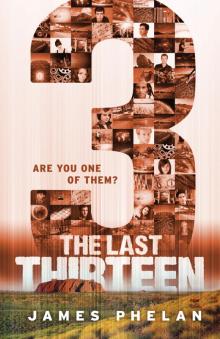 3
3 Survivor
Survivor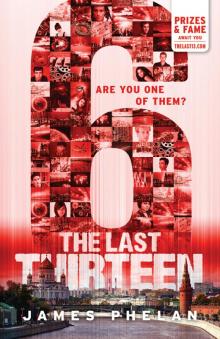 6
6 The Hunted
The Hunted Quarantine
Quarantine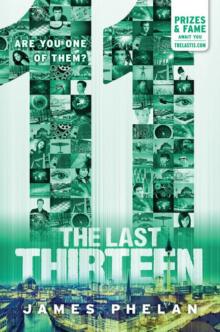 11
11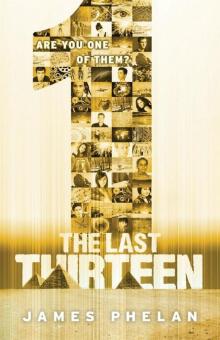 The Last Thirteen - 1
The Last Thirteen - 1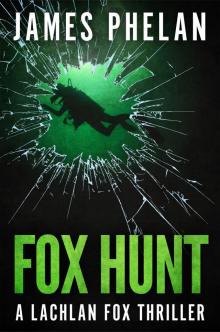 Fox Hunt
Fox Hunt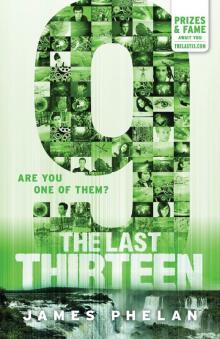 9
9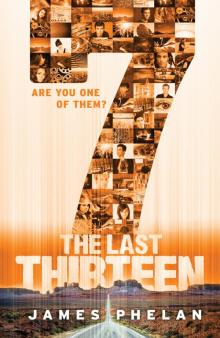 7
7 Patriot Act
Patriot Act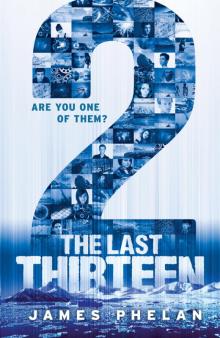 2
2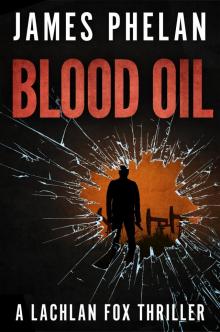 Blood Oil
Blood Oil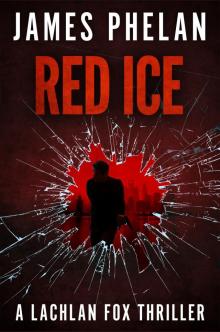 Red Ice
Red Ice Chasers
Chasers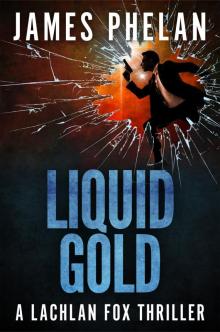 Liquid Gold
Liquid Gold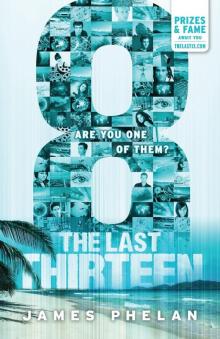 8
8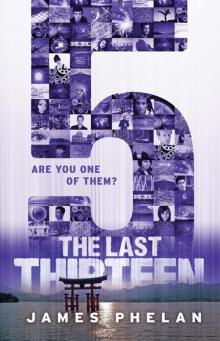 5
5 The Spy
The Spy Kill Switch
Kill Switch Dark Heart
Dark Heart